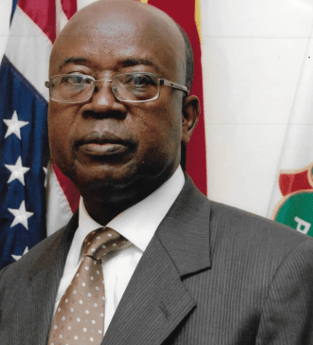By KINGSLEY LARBI( Rev. Prof.)
Introduction
In a world where leadership is often equated with privilege, true leadership is about action, resilience, and unwavering faith. Born to Win, particularly Chapter 32,
All Things Are Possible with God, provides a powerful narrative on how faith-driven visionaries defied financial constraints to establish Central University College (CUC) in Ghana.
This story is not just about education, it is about the transformative power of leadership, resourcefulness, and servant leadership. As Ghana and Africa navigate challenges in education, business, and governance, the lessons from this journey remain as relevant as ever.
Juxtaposing the Contemporary and Historical Leaders application of Faith, Leadership, and the Power of Action
Throughout history, leaders have harnessed faith, leadership, and decisive action to inspire change and guide their communities. Contemporary leaders continue this tradition, often drawing parallels to historical figures who exemplified these principles.
Historical Examples:
- Mahatma Gandhi:
Gandhi’s unwavering faith in nonviolence and justice led India to independence. His leadership was deeply rooted in spiritual beliefs, emphasizing truth and nonviolent resistance.
- Martin Luther King Jr.:
Inspired by his Christian faith, King championed civil rights in the United States, advocating for equality through peaceful protests and eloquent speeches.
Contemporary Examples:
- Leymah Gbowee:
A Liberian peace activist, Gbowee’s faith-driven leadership mobilized women to end Liberia’s civil war. She emphasized the importance of inner faith in driving societal change.
- Faith For Our Planet (FFOP):
Founded in 2022 by Dr. Muhammad al-Issa, FFOP unites global faith leaders to address climate change, demonstrating how contemporary leaders leverage faith to inspire environmental action.
Juxtaposition:
While historical leaders like Gandhi and King faced colonialism and racial segregation, contemporary leaders such as Gbowee and organizations like FFOP confront challenges like civil conflict and climate change. Both historical and modern leaders utilize faith as a foundation for leadership, inspiring action to address the pressing issues of their times.
In essence, the integration of faith, leadership, and action remains a timeless strategy for effecting positive change, bridging the efforts of past and present leaders.
Lessons Learned
- Vision and Resourcefulness Triumph Over Financial Constraints
In 1999, when CUC had over 1,000 students, 30 full-time faculty, and a dedicated support staff, financial support from the church remained limited. However, the institution thrived, proving that commitment, rather than capital alone, drives success.
Ghana’s education sector today faces similar constraints, with government expenditure on education at 4.2% of GDP—below UNESCO’s recommended 6%. Yet, institutions like Ashesi University and EduSpots continue to innovate with limited resources.
- Servant Leadership Drives Sustainable Success
Pastor Larbi personally walked to Kaneshie Market to secure a mattress for a student, an act criticized by some as beneath his status. However, his response reflected a higher principle: true leadership serves before it commands.
Globally, figures like Patrick Awuah of Ashesi University and Howard Schultz of Starbucks have demonstrated that hands-on leadership fosters long-term impact. In Ghana, where hierarchical leadership is common, adopting this model could transform institutions and businesses.
- Inner Drive is the Key to Excellence
Pastor Larbi’s work philosophy, “I do it, or I don’t do it at all”, reflects a mindset of excellence. Ghanaian entrepreneurs like Kwame Despite and Ibrahim Mahama built multimillion-dollar businesses through perseverance.
Globally, billionaires like Elon Musk and Oprah Winfrey rose from struggle to success by sheer determination. As Ghana faces a youth unemployment rate of 13.4%, fostering this mindset in education and entrepreneurship is critical.
Conclusion
The story of Central University College is not just about one institution, it is a lesson for leaders, entrepreneurs, and policymakers. Vision, servant leadership, and unwavering determination can overcome even the most difficult circumstances.
As Ghana and Africa move forward, these principles must guide our approach to education, business, and governance. Faith, leadership, and action are the keys to transforming nations.










